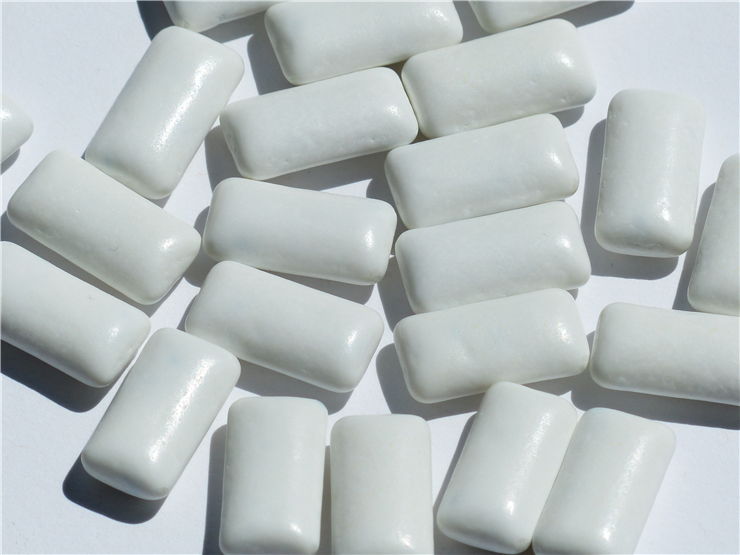Xylitol Gum - Dental Benefits of Xylitol
Since the last the end of the 20th century and the start of the 21st, gum manufacturers from all around the world unified in their wish to increase the dental health of their customers by providing them with chewing gums that not only switched from pure sugar to sugarless sweeteners but also used ingredients that would actively protect their teeth against cavities and decay. One essential element that almost every gum maker has become widely used is Xylitol. This naturally-occurring diabetic-safe, low-calorie carbohydrate could be harvested in its raw form from the coconut shells, barks of birch trees, and cottonseed hulls. Still, it can be found in smaller quantities in many other places, such as corn, plums, raspberries, and other fruits and vegetables. When processed, it looks and tastes much like ordinary sugar and is very similar to other popular "sugar alcohols" (or sugarless sweeteners) found in modern products on store shelves.
Teeth decay is caused by bacteria that live in our mouths. Those bacteria do not appear naturally but are transmitted from other people's mouths. Their spreading, growth inhibition, and eventually permanent attachment of the bacteria to the teeth most commonly happen by sharing food. Still, it can also occur via the simple lip-to-lip goodnight kisses parents give their children. Because of that simple way of transmission, dentists from all around the world recommend daily ingestion of up to 5g of Xylitol (around nine mints or 3-5 pieces of gum per day, preferably just after a meal so that Xylitol can dissuade bacteria in feeding on natural sugars in your meal), which gives an excellent chance that harmful bacteria in the mouth will start to starve, teeth would get more time to regenerate their outer mineral layers, and eventually, the presence of bacteria will go to such a low level that appearance of tooth decay would not spread or appear.

The core reason Xylitol helps in dental health is that it is non-fermentable. This means that bacteria cannot break down the Xylitol and release energy, making it inert to them and therefore removing a food supply from their ecosystem. After prolonged use, the lack of food inhibits the growth and reproduction of harmful micro-organisms living in the mouth, allowing the natural re-mineralization process to coat teeth and provide them with a safety wall against decay. The non-fermentable nature of Xylitol is also why this substance is not recommended to be used to create bread since yeast bacteria can't extract the energy they get from the disassembly of ordinary sugars.
The additional positive benefit of intake of Xylitol gums is that this sugarless sweetener has a lesser effect on blood sugar levels since it is more slowly absorbed into our metabolism. This effect can help people who suffer from impaired glucose tolerance disorder, which is a factor in developing cardiovascular diseases and diabetes. Today Xylitol is used in a wide variety of products, making it one of the most popular low-caloric sugarless sweeteners.

